Intriguing & Questioning: The Engine of Progress and the Architect of Understanding
Introduction:
The human experience is fundamentally characterized by a relentless pursuit of understanding. From the earliest days of our species, driven by instinct and fueled by curiosity, we have gazed at the world around us with both wonder and a need to decipher its mysteries. This inherent drive is manifested in two intertwined processes: intrigue and questioning. Intrigue, the spark of curiosity ignited by the unknown, compels us to explore beyond the familiar. Questioning, the systematic articulation of our doubts and uncertainties, provides the framework for that exploration. These two forces, working in tandem, are not merely passive observations; they are active agents in the construction of knowledge, the advancement of civilization, and the development of individual consciousness.
This article delves into the multifaceted nature of intrigue and questioning, examining their roles in diverse fields, from scientific discovery and artistic creation to personal growth and societal evolution. We will explore the psychological underpinnings of these processes, analyze their application in various contexts, and discuss the challenges and rewards associated with their persistent pursuit. Ultimately, we aim to demonstrate that intrigue and questioning are not merely desirable traits but essential tools for navigating a complex world, fostering innovation, and enriching the human experience.
The Genesis of Intrigue: A Psychological Perspective
Intrigue is more than just simple curiosity. It is a potent blend of anticipation, uncertainty, and the promise of revelation. Psychologically, it is rooted in several key factors:
-
Novelty Seeking: Human beings are innately drawn to novelty. Our brains are wired to prioritize and process new information, as it potentially holds valuable insights for survival and adaptation. Intrigue arises when we encounter something that deviates from our established patterns of understanding, triggering a heightened state of arousal and attention.[mfn 1]
-
Information Gap Theory: George Loewenstein’s Information Gap Theory posits that curiosity is driven by a perceived gap between what we know and what we want to know. This awareness of a deficit creates a state of “cognitive deprivation” that motivates us to seek out the missing information.[mfn 2] Intrigue can be seen as the initial spark that illuminates this information gap, igniting the desire to bridge the divide.
-
Appraisal Theory: Cognitive appraisal theory suggests that emotions are not directly triggered by events but rather by our interpretation of those events. Intrigue, in this context, arises when we appraise a situation as potentially interesting, significant, or personally relevant. This appraisal can be influenced by a variety of factors, including our prior knowledge, beliefs, and values.[mfn 3]
-
The Dopamine Connection: Neurologically, intrigue is associated with the release of dopamine, a neurotransmitter associated with reward and motivation. When we encounter something intriguing, the anticipation of discovering new information activates the dopamine pathways in the brain, creating a sense of pleasure and driving us to further investigate.[mfn 4]
Intrigue is not a static state; it is a dynamic process that evolves as we engage with the object of our curiosity. It can deepen as we uncover more information, leading to a more profound understanding. Conversely, it can diminish if our expectations are not met or if the perceived information gap is quickly closed.
The Art of Questioning: Framing the Inquiry
While intrigue provides the initial impetus for exploration, questioning provides the framework for that exploration. Questioning is the process of articulating our doubts, uncertainties, and desires for clarification. It is a fundamental tool for critical thinking, problem-solving, and knowledge acquisition.
Effective questioning requires more than just asking random questions. It involves a deliberate and strategic approach, guided by a clear understanding of the information gap we are trying to bridge. Key elements of the art of questioning include:
-
Defining the Scope: Before embarking on a quest for answers, it is essential to define the scope of the inquiry. What specific aspects of the intriguing phenomenon are we interested in exploring? What are the boundaries of our investigation? A well-defined scope helps to focus our efforts and avoid being overwhelmed by irrelevant information.
-
Formulating Hypotheses: Hypotheses are educated guesses or tentative explanations for the phenomenon we are investigating. Formulating hypotheses provides a framework for testing our assumptions and guiding our search for evidence. They serve as potential answers to our questions, which we can then evaluate through observation, experimentation, or analysis.
-
Choosing the Right Questions: Not all questions are created equal. Some questions are more effective than others in eliciting the information we need. Different types of questions serve different purposes. For example:
- Open-ended questions: Encourage detailed and thoughtful responses, allowing for exploration of nuances and perspectives.
- Closed-ended questions: Elicit specific answers, often requiring a simple “yes” or “no” response.
- Probing questions: Seek to clarify, expand upon, or challenge previous responses.
- Leading questions: Suggest a particular answer, which can be useful in certain contexts but should be used with caution.
-
Active Listening: Questioning is not simply about formulating and asking questions; it also involves actively listening to the responses. Active listening requires paying close attention to both the verbal and nonverbal cues of the speaker, seeking to understand their perspective, and responding in a way that demonstrates genuine interest and engagement.
-
Critical Evaluation: Once we have gathered information through questioning, it is crucial to critically evaluate its validity and reliability. Are the sources credible? Is the information consistent with other evidence? Are there any biases or limitations that might affect our interpretation?
Intrigue and Questioning in Scientific Discovery:
The history of science is replete with examples of groundbreaking discoveries sparked by intrigue and propelled by relentless questioning. From Isaac Newton’s observation of a falling apple, which led him to question the nature of gravity, to Marie Curie’s fascination with radioactivity, which led her to revolutionize our understanding of the atom, intrigue and questioning have been the driving forces behind scientific progress.
In the scientific method, intrigue typically manifests as a curiosity about a particular phenomenon, an anomaly, or a gap in our existing knowledge. This initial spark of interest then leads to a systematic process of questioning, observation, experimentation, and analysis. Scientists formulate hypotheses, design experiments to test those hypotheses, and analyze the results to draw conclusions. Throughout this process, questioning plays a crucial role in refining the hypotheses, identifying potential sources of error, and ensuring the rigor of the scientific investigation.
For example, consider the discovery of penicillin by Alexander Fleming. Fleming’s initial intrigue stemmed from his observation that a mold had contaminated a petri dish of bacteria, inhibiting its growth. Instead of simply discarding the contaminated dish, Fleming questioned the nature of the mold and its effects on the bacteria. He conducted further experiments to isolate and identify the active ingredient in the mold, which he eventually named penicillin. Fleming’s curiosity and systematic questioning led to the development of one of the most important antibiotics in history, saving countless lives and revolutionizing medicine.[mfn 5]
Intrigue and Questioning in Artistic Creation:
Intrigue and questioning are not limited to the realm of science; they are also essential components of artistic creation. Artists, like scientists, are driven by a desire to explore the unknown, to challenge existing conventions, and to express their unique perspectives. Intrigue can be sparked by a wide range of stimuli, from a fleeting emotion to a profound social issue. This initial spark then leads to a process of artistic exploration, where the artist uses their chosen medium to express their ideas, challenge their assumptions, and ultimately create something new.
Questioning plays a crucial role in this process. Artists constantly question their own assumptions, their techniques, and the meaning of their work. They ask themselves: What am I trying to express? How can I best communicate my ideas? What impact do I want my work to have on the audience? These questions guide their creative process, helping them to refine their vision and to create art that is both meaningful and impactful.
For example, consider the work of Pablo Picasso. Picasso was constantly experimenting with new styles and techniques, pushing the boundaries of artistic expression. His intrigue with the nature of perception and representation led him to develop Cubism, a revolutionary art movement that challenged traditional notions of perspective and form. Picasso’s constant questioning of artistic conventions allowed him to create some of the most iconic and influential works of art in the 20th century.[mfn 6]
Intrigue and Questioning in Personal Growth:
Intrigue and questioning are not only important for scientific and artistic endeavors; they are also essential for personal growth and development. By cultivating a sense of curiosity and a willingness to question our own beliefs and assumptions, we can expand our horizons, challenge our limitations, and ultimately become more well-rounded and fulfilled individuals.
Intrigue can lead us to explore new interests, develop new skills, and broaden our perspectives. By embracing the unknown and seeking out new experiences, we can break free from our comfort zones and discover hidden talents and passions. Questioning allows us to challenge our own biases, to examine our values, and to develop a more nuanced understanding of the world around us. By questioning our assumptions, we can identify areas where we may be holding ourselves back and develop strategies for overcoming our limitations.
For example, consider someone who has always believed that they are not creative. By cultivating a sense of intrigue about art and design, they might start to explore different creative outlets, such as painting, writing, or music. As they experiment with these different mediums, they might discover a hidden talent or passion that they never knew they possessed. Furthermore, by questioning their initial belief that they are not creative, they might realize that their definition of creativity was too narrow and that they possess creative abilities in other areas of their life.
Intrigue and Questioning in Societal Evolution:
Intrigue and questioning are not only important for individual growth; they are also essential for societal progress. Throughout history, societies that have embraced curiosity and critical thinking have been more likely to innovate, adapt, and thrive. By questioning established norms and challenging existing power structures, individuals and groups can bring about positive social change.
Intrigue can lead to the discovery of new solutions to pressing social problems. By exploring innovative ideas and challenging conventional wisdom, we can develop more effective strategies for addressing issues such as poverty, inequality, and climate change. Questioning allows us to identify injustices, challenge discriminatory practices, and advocate for a more equitable and just society. By questioning the status quo, we can create a more informed and engaged citizenry, capable of holding our leaders accountable and shaping a better future for all.
For example, consider the civil rights movement in the United States. The movement was sparked by the outrage and indignation of African Americans who were subjected to systemic discrimination and segregation. These individuals questioned the legitimacy of these unjust laws and practices, challenging the status quo and demanding equal rights under the law. Their relentless questioning and activism eventually led to the passage of landmark legislation, such as the Civil Rights Act of 1964 and the Voting Rights Act of 1965, which helped to dismantle segregation and advance the cause of racial equality.[mfn 7]
The Challenges of Intrigue and Questioning:
While intrigue and questioning are powerful tools for knowledge acquisition, innovation, and personal growth, they also present certain challenges.
-
Cognitive Dissonance: Questioning our deeply held beliefs can be uncomfortable, as it can lead to cognitive dissonance, a state of psychological discomfort that arises when we hold conflicting beliefs or values. To reduce this discomfort, we may be tempted to avoid questioning our beliefs or to rationalize our inconsistencies. Overcoming this tendency requires a willingness to embrace intellectual humility and to acknowledge the possibility that we may be wrong.
-
Resistance to Change: Questioning established norms and challenging existing power structures can be met with resistance from those who benefit from the status quo. Individuals who challenge conventional wisdom may be labeled as troublemakers, rebels, or heretics. They may face social ostracism, professional setbacks, or even physical harm. Overcoming this resistance requires courage, resilience, and a strong commitment to truth and justice.
-
Information Overload: In the age of the internet, we are constantly bombarded with information from a multitude of sources. This information overload can make it difficult to distinguish between credible and unreliable sources, to critically evaluate the information we encounter, and to formulate well-informed opinions. Navigating this complex information landscape requires strong critical thinking skills, a healthy dose of skepticism, and a commitment to lifelong learning.
-
The Fear of Uncertainty: Questioning can lead us into uncharted territory, where we may encounter uncertainty, ambiguity, and complexity. This can be unsettling for some individuals, who prefer the comfort of certainty and predictability. However, embracing uncertainty is essential for intellectual growth and innovation. By acknowledging the limits of our knowledge and embracing the possibility of being wrong, we can open ourselves up to new ideas and perspectives.
Cultivating Intrigue and Questioning:
Despite the challenges, the rewards of cultivating intrigue and questioning are well worth the effort. By fostering these qualities in ourselves and in others, we can unlock our potential for creativity, innovation, and personal growth. Here are some strategies for cultivating intrigue and questioning:
-
Embrace Curiosity: Cultivate a sense of wonder and a desire to learn new things. Read widely, explore different cultures, and engage in conversations with people who hold different perspectives.
-
Ask “Why?” Don’t be afraid to question the status quo. Ask “why?” questions to challenge assumptions, uncover hidden biases, and identify opportunities for improvement.
-
Seek Out Diverse Perspectives: Expose yourself to a variety of viewpoints and perspectives. Read books, articles, and blog posts from different authors and sources. Engage in discussions with people who hold different opinions.
-
Practice Active Listening: Pay attention to what others have to say, even if you disagree with them. Ask clarifying questions and try to understand their perspective.
-
Embrace Intellectual Humility: Acknowledge the limits of your knowledge and be open to the possibility that you may be wrong. Be willing to change your mind when presented with new evidence.
-
Create a Safe Space for Questioning: Foster an environment where people feel comfortable asking questions and challenging assumptions without fear of judgment or ridicule.
-
Encourage Critical Thinking: Teach children and adults how to think critically, evaluate evidence, and form their own opinions.
-
Embrace Failure: Recognize that failure is a natural part of the learning process. Don’t be afraid to experiment, take risks, and learn from your mistakes.
Conclusion:
Intrigue and questioning are not merely intellectual exercises; they are fundamental aspects of the human experience. They are the engine of progress, the architect of understanding, and the key to unlocking our potential for creativity, innovation, and personal growth. By cultivating a sense of curiosity and a willingness to question our own beliefs and assumptions, we can navigate a complex world, foster innovation, and enrich the human experience.
In a world facing unprecedented challenges, from climate change and pandemics to social inequality and political polarization, the ability to think critically, to challenge conventional wisdom, and to seek out new solutions is more important than ever. Intrigue and questioning are not just desirable traits; they are essential tools for building a better future for ourselves and for generations to come. Let us embrace the power of intrigue and questioning, and let us use these tools to create a more just, equitable, and sustainable world.
References:
[mfn 1] Berlyne, D. E. (1960). Conflict, arousal, and curiosity. McGraw-Hill. [mfn 2] Loewenstein, G. (1994). The psychology of curiosity: A review and reinterpretation. Psychological Bulletin, 116(1), 75–98. [mfn 3] Lazarus, R. S. (1991). Emotion and adaptation. Oxford University Press. [mfn 4] Gruber, M. J., Gelman, B. D., & Ranganath, C. (2014). States of curiosity modulate hippocampus-dependent learning via the dopamine circuit. Neuron, 84(2), 486–496. [mfn 5] Lax, E. (2004). The Mold in Dr. Florey’s Coat: The Story of the Penicillin Miracle. Henry Holt and Company. [mfn 6] Berger, J. (1965). The Success and Failure of Picasso. Pantheon Books. [mfn 7] Fairclough, A. (2001). Better Day Coming: Blacks and Equality, 1890-2000. Viking.

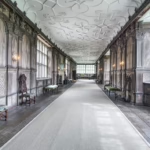
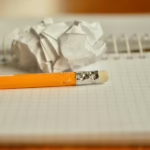


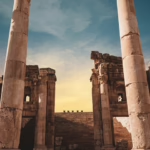
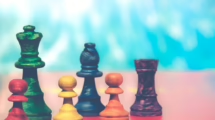
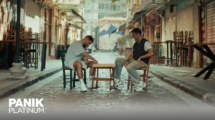
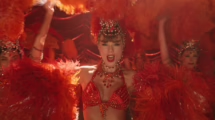





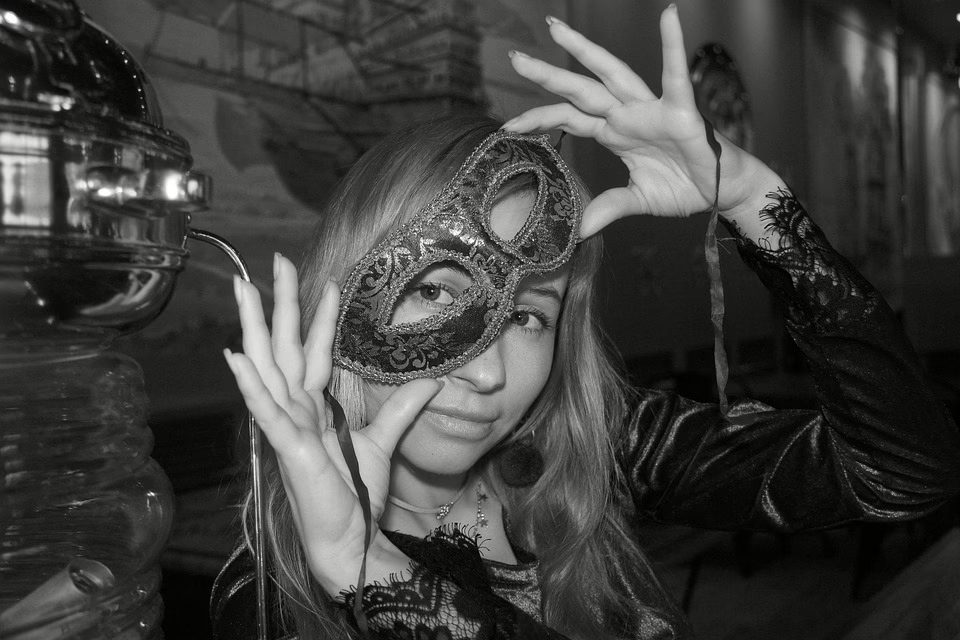
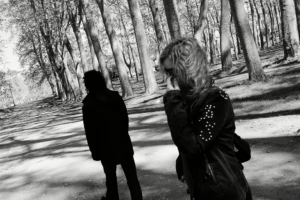
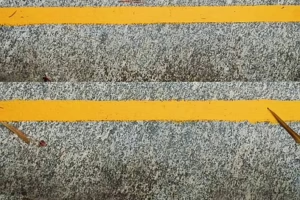
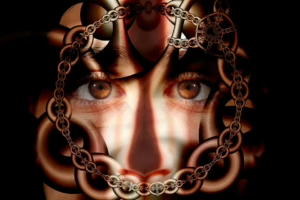
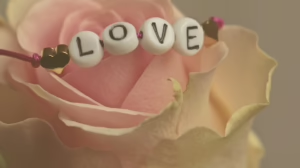

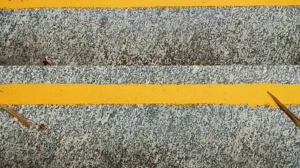




Add Comment